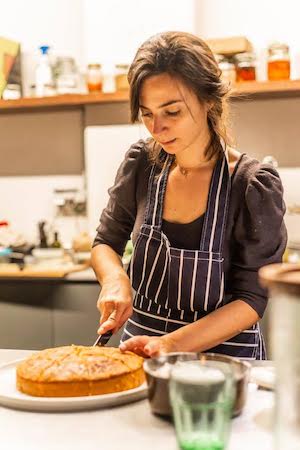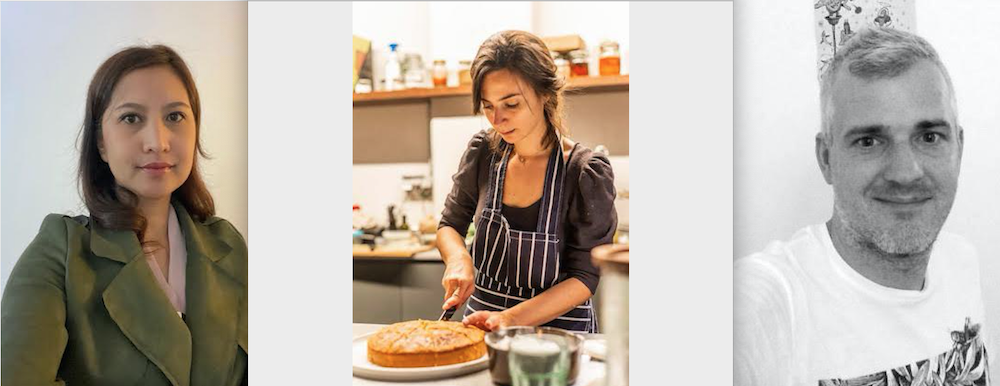With the spread of the coronavirus around the world, many of us are dealing with complicated circumstances, including those who are far away from their families. There are many expats in Portugal in similar situations trying to make sense of it all.
Seven share their experiences from Lisbon below.
– Liina Edun

ALLESSANDRA, ITALY
Just before the pandemic reached Lisbon, I went on a 3-week trip to Peru in February. At the time, all I was thinking about was to get away from city life and reconnect with myself in nature, outside of my comfort zone. It was an amazing journey but unfortunately I caught bronchitis the last two days of my trip. And right before arriving back to Lisbon, my flatmate told me not to come back to the flat that we share, fearing that I might have the coronavirus.
I was at the airport when it all happened, and I was trying to be strong, but it’s not an easy situation when you don’t have a place to live and at the same time the whole world is asking you to stay in. I could not even visit my family in Italy because of the “red zone” and them being on complete lockdown.
So I decided to book a hostel for a few days, even though it was not the best place to recover from my severe bronchitis, and was also not the safest place to isolate oneself as there were loads of people there.
All of a sudden, I was left with no home, no job prospect, and had to rethink what to do with my small business of hosting cooking classes. I was in a very difficult situation and my “coming back home” was definitely not as expected. But the trip to Peru had given me renewed energy and a much needed break, and I was able to get some perspective and look at my situation from a different point of view.
And when I started to look for solutions, everything shifted again around me but this time in a positive way. I decided to create three pasta classes online (mini courses), and a friend offered me temporary accommodation in the heart of Lisbon with the best view of the Tejo River.
During times like these you really see the essence of people, the good and the bad, and I am so very grateful for what I have every single day, as well as what I am building for myself. This keeps me going and allows me to stay mentally healthy.

• CHENXI, CHINA
Covid-19 intruded into my life much earlier than the majority in Portugal, immediately after I returned from a visit to China at the beginning of January. A few days after my return to Lisbon, I started hearing about the virus spread in China. When a complete lockdown in my hometown led to my family canceling all the Chinese New Year festivities (Chinese New Year is the most important event in the Chinese culture), I started to realize that maybe this issue was not going to end anytime soon, and more people should become aware of it.
Some Chinese residents in Lisbon started wearing masks in February, after hearing about the spread in China. At the same time, the Chinese community in Portugal agreed to do a 14-day voluntary quarantine once they returned from China. Because of the early preventative measures, I felt pretty safe in Lisbon until the end of February, when the number of cases in Italy and Spain started to increase at an exponential level.
I started wearing masks ever since Portugal reported the first two cases. I did not realise that by doing this, I was inviting a lot of prejudice. On public transportation, people would stare at me with fear. People often refused to sit near me, so I started writing “I am not infected” in Portuguese on my masks. However, the fear of taking public transport was present for me too, especially when I realised that a lot of people were coughing without covering their mouths.
When Portugal reported 169 reported cases, my employer finally allowed us to work from home I stay in my room most of the time, and I only step out to go to the supermarket, and I bury myself in work. Meanwhile, my parents officially finished their one and a half month of quarantine, since there have been no newly reported cases in the last 20 days in my hometown.
The situation became somewhat ironic as my parents started to send me masks and hand sanitizer from China. They are worried about my safety, and they call me everyday to ask about the situation in Portugal. I prefer not to share too much about what was going on in Lisbon given that it has the same population as my hometown, but with 64 times more reported cases (as of today 7 April).
My parents would worry even more if they knew that at the beginning of the pandemic in Portugal, many people still went to the beach in large groups; had parades in downtown Lisbon; hosted corona-virus theme parties, and were not taking preventative measures until it was enforced onto them.
So rather than share all of that with my parents, I just promise them to stay home as long as I can and follow all the other prevention rules that I learned at the end of January, when the whole of China was suffering during the days when they should have been celebrating the Chinese New Year.
ELENA, SPAIN
As a freelance translator, I was already working from home, so my daily routine hasn’t changed much. However, I do have a feeling of uncertainty that I didn’t have before. As a freelancer, it’s normal to have phases where there is a lot of work, and months that are slow. They balance each other out.
However, now we have a completely different scenario, one that I’ve never
experienced before and I can’t help but feel apprehensive that I won’t be able to survive as a freelancer after this. This fear unfortunately does not just apply to me or my fellow translators; it applies to many industries.
On another note, I realise that I took for granted my freedom of movement as a European citizen. Now I cannot simply hop on a plane and go visit my family in Spain at a moment’s notice, and that makes me feel uneasy. I don’t know when I’ll be able to go back to my country, or when I will be able to see my parents again. This gave me perspective because I realise that
many people around the world experience this type of situation, often without it being a consequence of a global pandemic.
But European citizens are so privileged, and we rarely take a moment to appreciate it. So one good thing that I hope comes out of this quarantine is that it helps us to be more aware of the privileges we have, and teaches us empathy toward the people who don’t have the same opportunities or rights. Another aspect related to that is the housing situation here. Most residents of Lisbon share apartments, with young working adults and university students having to share with strangers most of the time.
Many apartments are quite small, some don’t have a common shared space
such as a living room, and some tenants even rent windowless rooms because it’s more affordable. Meanwhile, there are others who are lucky to have balconies, backyards, or even a garden.
I share an apartment with two people who often have their partners stay over, and I only have my own bedroom to work, rest, and exercise. It makes me feel claustrophobic, and the cabin fever won’t take long to set in. But everything has a silver lining, and I think we could use this lockdown to appreciate what we have and to spend our time productively.
For instance, I am using this time to expand my skills. I am cooking a lot, even exploring recipes that I always thought difficult and never had the courage to try.
I am also realising that I don’t need many material things to live comfortably, and it’s possible to have a decent, happy life with less. And I am feeling more connected with myself than ever.














